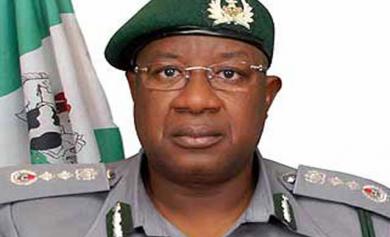
The Nigeria Customs Service collected a total of N1.14 trillion from August 2009 to date, Comptroller-General of the Service, Abdullahi Dikko, disclosed yesterday.
The CGC who was speaking at a press briefing in Abuja to mark his two years in office, informed that within the period, a total of N662.15 billion was remitted into the Federation Account while N475.46 billion was remitted into the non-federation account, bringing the total to N1.14 trillion.
He explained that the improved revenue collection was achieved through the adoption of a revenue enhancement strategy which includes identifying and blocking revenue leakages and setting up of special duty investigations team.
Other strategies adopted according to Dikko, were the establishment a system alert unit at the headquaters for closer monitoring and the automation of all Customs procedures from manifest submission to cargo release as well as motivation of workforce through improved salaries and capacity building.
The Customs boss also informed that implementation of 100 per cent salary increase of officers was made possible within the period even as he added that a total of 12,510 officers benefited from various local and overseas training programme.
On anti-smuggling, Dikko disclosed that the service has within the last two years extended its operations beyond the nation’s borders to cover the country’s sea and airports. “These activities have resulted in a total of 9,497 seizures with a duty paid value of N16, 221,457,870.47, in addition, a total of 517 arrests were made in connection with the seizures.”
He also disclosed that a total of 8,906 deserving officers have been either promoted or upgraded within the period while a total of 74 erring officers have also been either demoted or outrightly dismissed in line with the administration’s zero tolerance on indiscipline.
On funding, the Customs boss however, noted that the seven per cent cost of collection from which the Service was presently funded was inadequate, adding that there was need for an alternative funding system.
His words: “It is worthy to note that inadequacy of funding has resulted in the Service request for intervention funds to meet her needs. There is therefore the need for an alternative funding of the Service other than the present seven per cent cost of collection which has proved inadequate. This informed the suggestion of the NCS to the government for a funding system based on four per cent FOB value on imports and excise which we believe will adequately address the funding problems of the Service.”
He stated that the Customs regional college in Gwagwalada would commence operations before the end of September, 2011, disclosing that there was the likelihood for the institution to benefit from funding from donors, while the World Customs Organisation would support with resource persons.
The institution which was endorsed recently by the WCO as regional training centre for the West and Central African regions, according to Dikko, would cater for 23 Customs administrations in the regions, comprising of 18 French speaking countries and five English speaking countries.

